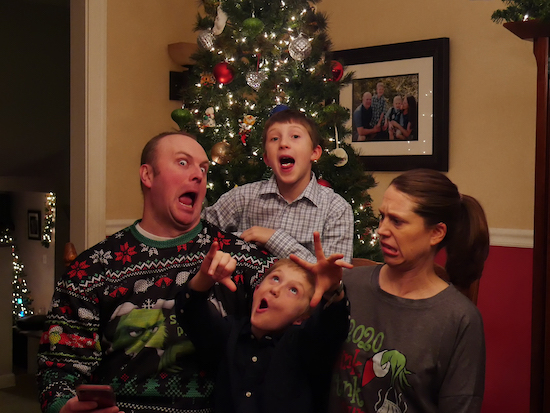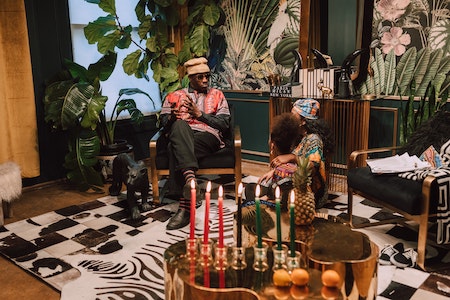
A Wife Of Noble Character: I’ve found my Proverbs 31 woman in my wife, Kara, and life with her couldn’t be any better
December 22, 2022
Truly Sacrificial: Terri has spent a lifetime putting others before herself, and her kids are hoping to return the favor
December 24, 2022I bet you did not know all of these 10 Kwanzaa facts… or maybe you did
Kwanzaa is a week-long holiday that starts the day after Christmas. However, if you are like me before writing this article, you probably do not know too much about the holiday. Thankfully, I have got you covered with 10 interesting facts about Kwanzaa that we find important.
- Kwanzaa celebrates the African American culture – Unlike December holidays Christmas and Hanukkah, Kwanzaa is not a religious holiday. It is actually a cultural holiday that is all about the African heritage and to remember and appreciate how far they have come. It came about in the 60s as an alternative to Christmas, but over the decades has become a holiday that is celebrated alongside of Christmas.
- However, you do not have to be of African descent to celebrate – Kwanzaa is a cultural holiday, and because of that it is a holiday whose meaning should not be forgotten. The founders of the holiday asked that if you are going to celebrate Kwanzaa, then remember the history and the significance.
- Honestly… Anyone can celebrate Kwanzaa – Kwanzaa is an African-inspired, American-invented, all inclusive holiday. While it is a cultural celebration, part of what they wanted this holiday to be about was how inclusive the culture truly is. That’s why anyone of any skin color can celebrate, regardless of what their background or heritage looks like.
- US presidents celebrate habitually – It is not a federal or state holiday, so essentially Kwanzaa just exists to the majority of Americans. However, people in positions of power – like the presidents – will make sure the holiday is still highlighted.
- There’s Kwanzaa how-to’s – Since it is not as widely regarded or celebrated as most other holidays, this makes total sense. There is both an official book and an official website that explain how to celebrate Kwanzaa.
- Kwanzaa’s founder was a felon – Some people also believed that the founder of the holiday was anti-white. The reality, however, is that he is pro-black and pro-cultural history.
- Kwanzaa means “first fruits of harvest” – When translated, this is the literal meaning of the name Kwanzaa. It makes sense that it is a holiday that ends one year and begins the next.
- There are seven symbols that represent Kwanzaa – There are seven days of Kwanzaa. There are also seven symbols that represent the holiday and why it is celebrated.
- The candle holder (Kinara)
- Unity cup (Kikombe cha Umoja)
- Placemat (Mkeka)
- Crops (Mazao)
- Corn (Muhindi)
- Gifts (Zawadi)
- Mat (Mkeka)
- There are seven principles as well – There are seven days of Kwanzaa and seven symbols that represent the holiday. There are also seven candles on the Kinara that represent the seven days, as well as seven different principles of Kwanzaa.
- Umoja (Unity) – To remain united in the community.
- Kujichagulia (Self-Determination) – To be responsible for yourself and your community.
- Ujima (Collective Work and Responsibility) – To work together.
- Ujamaa – (Cooperative Economics) – To create African-American owned businesses.
- Nia (Purpose) – To build and develop the community.
- Kuumba (Creativity) – To improve our community and make it more beautiful.
- Imani (Faith) – To believe that the world can become a better place.
- The candle colors have meaning as well – From the historical significance of slavery and beyond. The green, black and red candles represent a lot. They represent the people, the struggle and the future.
It’s crazy that a holiday like this has so much meaning and historical significance and yet it is hardly talked about. Whether you observe Kwanzaa or not, though, it is still good to know why the holiday exists.
Nathaniel Chambers
Nathaniel Chambers is the managing supervisor, lead writer and editor of My FrontPage Story. He is a former intern for the company who took over day-to-day operations in 2021.
Related posts
Photo credit: depositphotos.com
March 5, 2025
Photo credit: depositphotos.com
March 3, 2025




